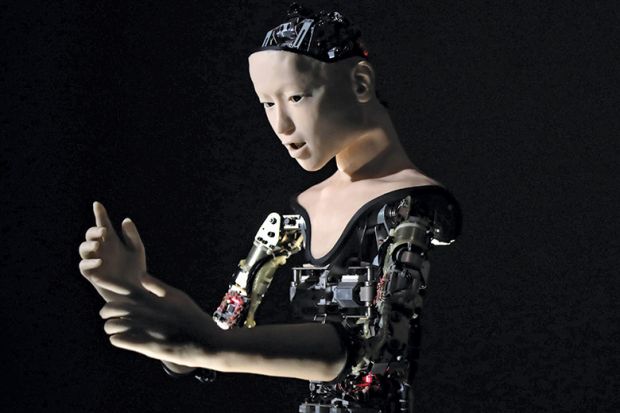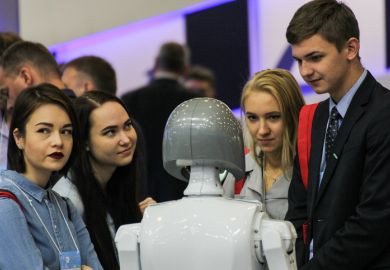Universities will be caught up in “Olympian” levels of competition in coming years as countries race to make advancements in fields such as artificial intelligence and robotics, a vice-chancellor has warned.
Sir Keith Burnett, vice-chancellor of the University of Sheffield, told Times Higher Education’s Asia Universities Summit that universities – particularly in the Western world – could not be complacent at the dawn of a new technological era.
“I think there will be some races running between nations...a race for who will have the most competent and consistent team, over who can organise AI, simulation and manufacturing in the same place, and I think China will win,” said Sir Keith, noting that his own university had been quick to set up ties with partnering institutions in Asia.
China has moved to increase its research and development spend more than 30 times over the past 20 years, while South Korea has strong nuclear power and Japan has “the best robotics at the moment”, he explained, insisting that such comparisons will become key in the coming years as major global companies pick and choose which economies to work with.
“This is what it’s going to be, a kind of Olympics going on in the industries,” Sir Keith added, “and universities have to ask: where will they act in that space?
“It will create pressure to form alliances. You do not want to be isolated when it comes to your industrial connections, or your academic connections in the very near future. Don’t think you can do it on your own and don’t think you can plan for it on your own.”
Tackling the subject of what potential problems universities and their supporting economies could face in the new industrial age, panel members remained split over the issue of employment.
Sung-Chul Shin, president of the Korea Advanced Institute of Science and Technology (KAIST), warned that unemployment will be “one of the big challenges” faced, with as many as half of manufacturing labourers destined to lose their jobs. “There will also be increased inequality,” he argued, with tech giants Google and Facebook already dominating global business.
Margaret Gardner, vice-chancellor of Monash University, responded that it was universities’ responsibility to counteract this by ensuring that new roles are created to replace those that become redundant.
“It is incumbent on us [as universities] to speak and consistently retain cross-border mobility of scholars and students,” she added. “Although we are talking about a digital world, things that will make this run are real human connections.”
“The fourth revolution is already here, it is a fact of life and we have to embrace it,” said Timothy Tong, the fourth panel member and president of Hong Kong Polytechnic University.
Technological improvements may make instant communications easier for researchers, university communities and surrounding societies, he said, but he agreed that freedom of movement must be protected in order to prepare for the new digital era.
“People from different backgrounds deal with different problems in different ways,” Professor Tong explained. “It is not enough to simply connect from afar; people from Hong Kong need to be aware of other cultures [and vice versa]. We are preparing our graduates to deal with these complexities and real human experiences will be key.”




